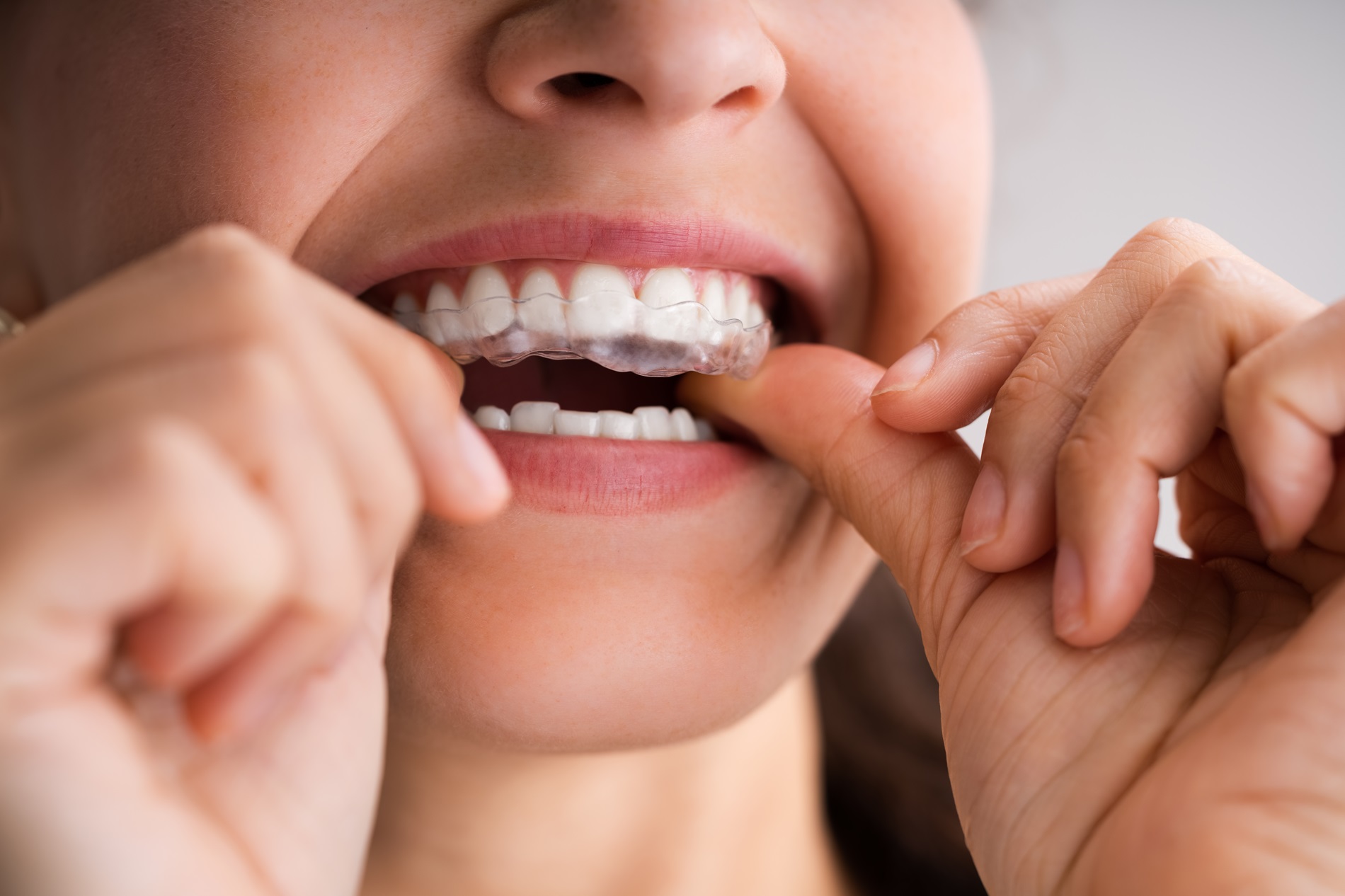Bruxism
Bruxism
Grinding or clenching your teeth — often without even realizing it? At Riverside Dental Practice Putney, we help diagnose and manage bruxism to protect your teeth, jaw, and overall oral health.

Bruxism is a condition where individuals grind or clench their teeth, either during sleep (night-time bruxism) or while awake (awake bruxism). Left untreated, bruxism can lead to tooth wear, fractures, jaw pain, and damage to dental restorations.
Some people are aware of their grinding or clenching habits, while others only realize they have bruxism after symptoms or dental damage appear.
A dentist can often detect bruxism by identifying signs like excessive tooth wear, fractures, or jaw muscle tension during a routine examination.
- Tooth Wear & Enamel Loss: Grinding erodes enamel, increasing sensitivity and cavity risk.
- Fractured or Chipped Teeth: Constant pressure can crack or break teeth and restorations.
- Restoration Fractures & Retreatment Needs: Even crowns, veneers, and fillings can suffer damage, requiring retreatment.
- Jaw Pain & TMJ Disorders: Bruxism strains jaw muscles and joints, which may to jaw pain, headaches, and facial pain.
- Receding Gums & Tooth Mobility: Long-term clenching can cause gum recession and tooth looseness.
- Disturbed Sleep: Night-time bruxism can disrupt sleep, leading to daytime fatigue and discomfort.
Causes & Risk Factors
Several factors can contribute to bruxism, including:
Stress & Anxiety
Emotional stress is a major trigger, especially during sleep.
Lifestyle Factors
High caffeine intake, alcohol, and smoking have been linked to increased grinding.
Medications & Neurological Conditions
Certain medications, particularly antidepressants, and some neurological disorders may be associated with bruxism.
Treatment & Management of Bruxism
Managing bruxism involves a tailored approach to protect your teeth and relieve symptoms.
01
Custom-Fitted Splints & Night Guards
A professionally made occlusal splint or night guard is one of the most effective treatments. These custom appliances:
- Protect teeth from wear and fractures.
- Reduce muscle strain and jaw discomfort.
- Minimize grinding and clenching forces.
- Help preserve dental restorations.
02
Stress Management & Lifestyle Changes
- Relaxation techniques like mindfulness, meditation, and jaw exercises can help reduce stress-related grinding.
- Cutting back on caffeine and alcohol, especially before bedtime, can also be beneficial.
03
Dental Treatments for Severe Cases
If bruxism has already caused significant damage, treatments such as composite bonding, crowns, or veneers may be needed to restore and protect your teeth.
Preventing Long-Term Damage
Regular dental check-ups are key to detecting early signs of bruxism and preventing more serious problems.
If you suspect you may be grinding your teeth, contact Riverside Dental Practice Putney today — protecting your smile starts with professional advice and early intervention.

Book an Examination
Ready to Transform Your Smile?
Book your appointment today and experience the difference at Riverside Dental Practice.

